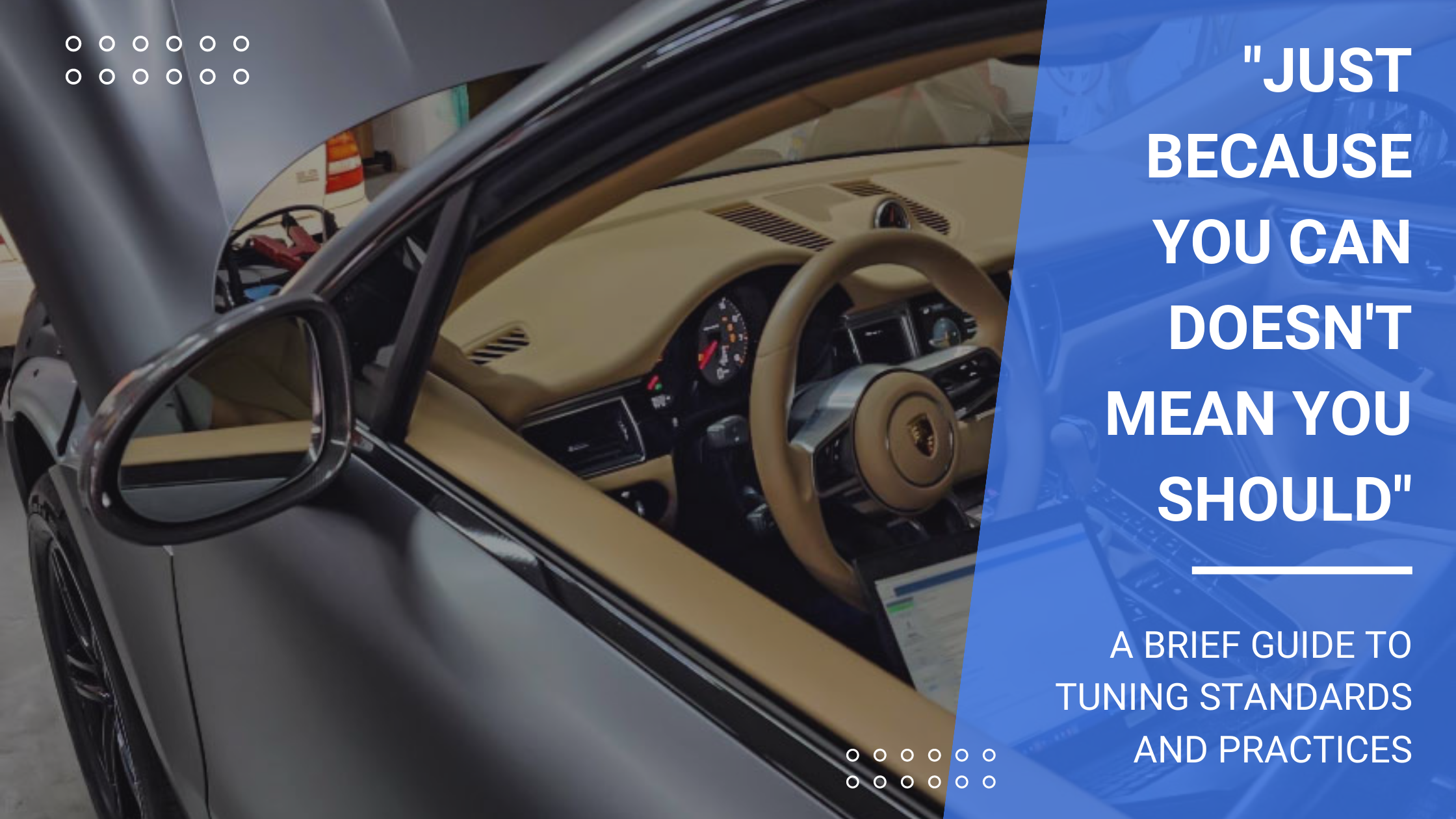“Just because you can, doesn’t mean you should”
A Brief Guide to Tuning Standards and Practices
By. Bayhas Kana
(Principal Engineer of Eurocharged Boston)
ECU calibration, also known simply as “remapping” or ”tuning”, is more popular than ever- with increased consumer demand for improved performance and higher horsepower and torque output from their vehicles.
As demand for tuning is increasing, and big names in the industry are becoming a household name. We’ve seen shifts in the industry on unprecedented levels, where the tuning arms of automotive manufacturers drowned the actual brand, to the point that it became the flashship of the company… cough cough… AMG!
It’s the same story in the aftermarket world- tuning is becoming a standard practice for the enthusiast, and modifying a car in the first week of ownership is now a standard issue; just like installing tint, new wheels and other customization accessories.
Naturally, with all testosterone driven markets for power and performance, competitiveness takes over, and there is always a race to the top for tuners to be the fastest, quickest, and most powerful. Due to this, a common misconception started to emerge that tuning is a “competitive sport”, and two tuners can have a showdown and tune-off to make the most horsepower out of a given car or platform.
This misconstruction of tuning is clearly driven by a lack of understanding of what tuning is actually targeting; along with a misunderstanding of material engineering- longevity and reliability, and most importantly equipment tolerance.
The fact is, tuning for street going cars targets to unlock power that the factory has left on the table, for whatever reason. Usually manufacturers reduce power output of engines for marketing purposes, so there are clear model segments in the product line. Other reasons to detune an engine are market compliance, competition, program or platform termination, etc.
This is not to be confused with race tuning, where you want an engine to make every last bit of power for a 50-lap race, or 10 seconds drag run, because you’re after a cup or a prize that far exceeds the value of the car itself.
Streetcar tuners can safely unlock a significant amount of power; while at the same time, keeping service intervals the same as recommended from factory, and long-term engine longevity and life expectancy about the same as factory.
However, there is a point the tuner needs to stop- when they determine that hardware tolerance will be exceeded, and the engine is statistically not going to last for long if these limits are exceeded. These limits are determined by experience, engineering calculation, countless hours of taking engines apart and studying their components, and most importantly testing. Reputable tuners complete an enormous amount of testing to determine actual hardware limits.
Needless to say, such testing to wreck engines is not cheap, and therefore a properly tested tune by a highly regarded company won’t be cheap, as it carries a significant cost of research and development behind it. Furthermore, a responsible tuning company will always develop tunes on a dyno with test mules and have an extensive amount of pre-marketing development.
As more and more technicians are aspiring to become tuners and automotive software engineers, a whole field of opportunities has opened up to those that have the technical background and passion to learn. Meanwhile, on a parallel front, more companies have realized the high demand for this industry, and they have developed universal tools that have the ability to access and modify engine management systems.
Unfortunately, this unregulated access has allowed many self-proclaimed “tuners” to claim to be knowledgeable engineers, who have begun selling their services, and claiming to make vastly more power than the industry leaders. It’s easy to see why, as these self-taught “tuners” don’t realize the difference between race car tuning, and streetcar tuning.
This lack of restraint could blow the customer’s car up in as little as few short thousand miles. For enthusiasts who also intend to daily drive their vehicle, or have plans to sell it eventually, this could be financially devastating. A reputable tuner will never exceed the vehicle’s tolerance levels unless the customer is willing to take that financial gamble and understands the consequences that modifying a vehicle for racing purposes can have.
In short, when someone is operating out of their kitchen claiming to make tremendously more power than the industry leaders that have been doing this for decades, always approach them with skepticism; they either have no idea what they are doing, or they are attempting to tune your streetcar as if it’s a race car, without regards to the factory tolerance levels.
Tuning clients should always do their due diligence and ask for dyno sheets with proven gains and inquire about how many vehicles they have tuned with these figures- and how many of them are still on the road.
Bottom line- when it comes to maximizing gains of a given platform, some wisdom goes a long way, and professional tuners know when to stop. Just because you can make more power, doesn’t mean you should.


